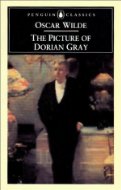The Great Stink - Clare Clark
After reading the back of Clare Clark’s ‘The Great Stink’ I was expecting to read an entertaining but reasonably cozy historical murder mystery. Take a gander and see if you think that idea was justified:
“Through the city sewers walks surveyor and ex-soldier William May, just back from the horrifying brutality of the Crimean front and hiding from his own demons in the darkness beneath the capital’s street. But when May stumbles across a body in the tunnels, his discovery draws him into a maelstrom of underworld corruption that drags both himself and those closest to him further into depths from which there may be no possibility of light – or return…”
From this description William sounds like your typical damaged yet resilient murder mystery hero. He may be disturbed by war but essentially he’s a solid, together man, perfectly suited to be a citizen investigator who won’t throw up when discovering a body. The plot might veer into darkness and there might be a little violence but all that will be presented in a civilized way, following a familiar pattern of discovery, clues, solution. It was actually this blurb that kept me from picking up the book for almost a year, because I was never in the mood for this kind of formula.
The description of this book, while accurate in places, gives an entirely misleading impression of the ‘The Great Stink’. The ‘demon’ William faces is actually a strong desire to self harm, which he experiences regularly, eventually hiding in the tunnels to hack into his arms and release the black cravings that overcome him. He is constantly teetering on the edge of a breakdown, on several occasions descending into fevered ravings. This hero’s troubles are in a completely different league to the quite genteel addictions of other investigative heroes and detectives in historical fiction. The first three quarters of the book have little to do with a body in the tunnels. Instead Clare Clark examines her hero’s psychological make up, driving him to destroy his life through a combination of uncompromising morals and an fractured state of mind. The author’s choice to use her book to explore self harm in Victorian England makes for a compelling historical, full of sedition and shame that pelts along. I was easily hooked on William May’s struggle to actually desire life, instead of blankness.
If that all sounds a bit bleak to you, there’s also a subplot involving the best dog in the world. Long Arm Tom is a tosher, a man who searches the sewers for rats to sell for dog baiting. He lives alone, believing that he doesn’t need anyone until one day he finds an ugly dog abandoned in the streets. He and the dog, Lady, bond instantly, he trains her to be a champion ratter but as the sewers become harder to access he decides to sell her for a large sum to support himself in his old age. Tom is cheated out of this sum and misses his dog so he becomes obsessed with regaining her from the swindling gentleman, the Captain. It might sound a bit sentimental, sort of like Lassie come home set in Victorian London, but Tom is a sharply written character, created out of a bare bones personality. The love he feels for Lady beats down his usual life saving practicality. Perhaps you’ll find this condescendingly unrealistic but I think it humanizes poverty by showing an incredibly poor character who feels the importance of love in the face of large sums of money.
‘The Great Stink’ is not just a murder mystery, in fact the mystery part is quite weak and is more of a plot device for furthering William’s descent. It’s a thorough look at the effects of war on the main character, with a massive amount of anti-saccharine redemption running through both plot lines.
That's the first one down. My remaining two books are suppousedly 'Great Expectations' and Wives and Daughters' but I'm feeling tempted to swap one out for 'The Observations', which has been sitting glaring at me for a long time.








